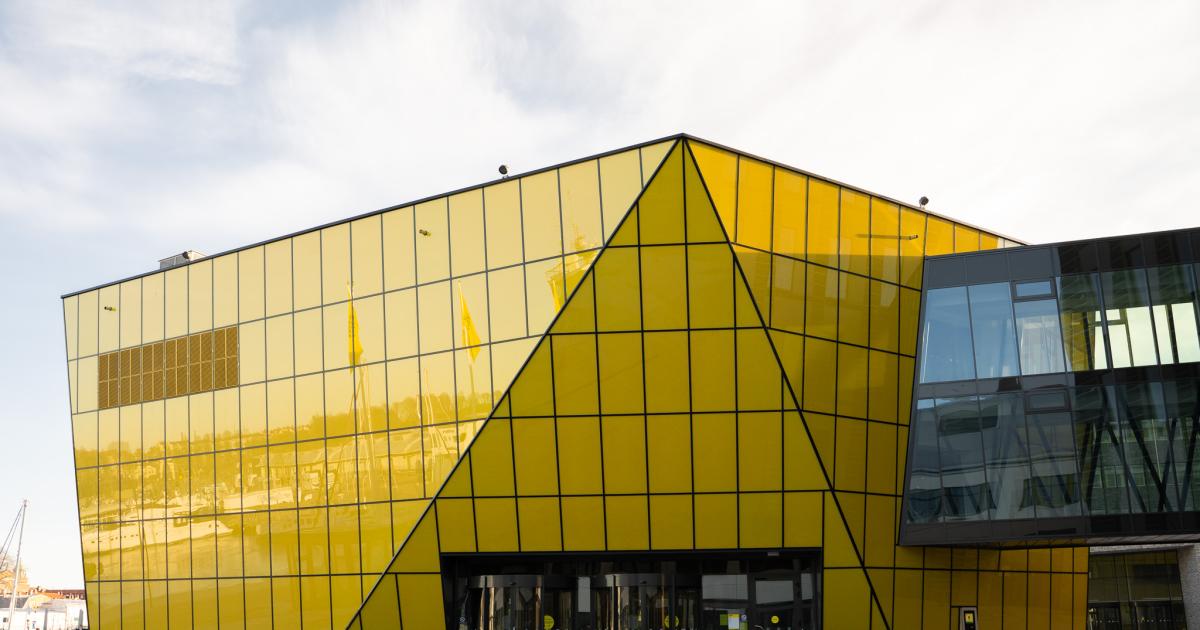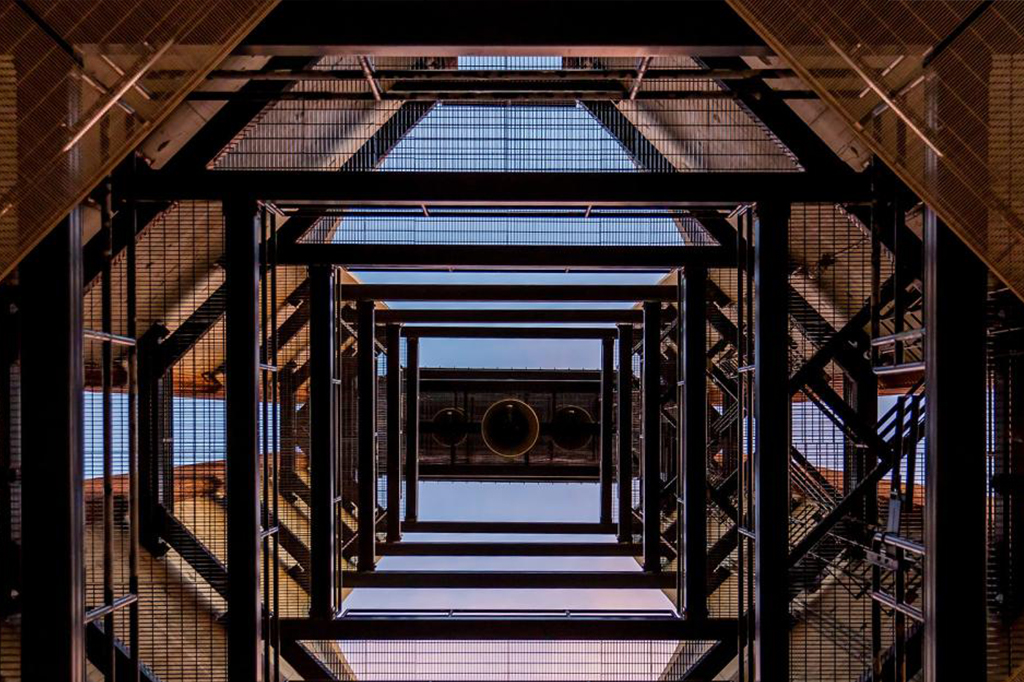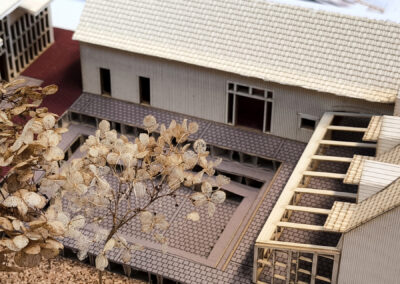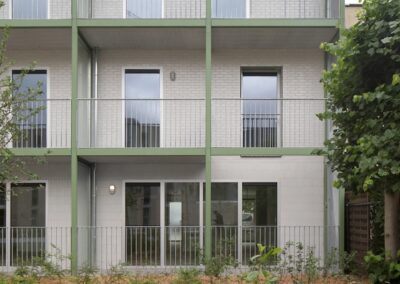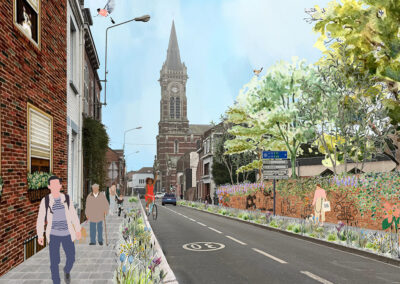HABITER2030 is committed to its partners at the European level, particularly within the framework of Interreg. By the end of November, we found out that HABITER2030 would lead two important projects: “Circular Trust Building” and Upcycling Trust.
CTB / CIRCULAR TRUST BUILDING: a project for the long term
In the context of the second phase of the interregional North Sea Region project, HABITER2030, along with CD2E (Centre de Développement des Eco-entreprises) and the Ecole Nationale Supérieure d’Architecture et de Paysage de Lille (ENSAPL), commit to “Circular Building Trust” (2024 – 2027).
Led from Drenthe, the Netherlands, the project aims to accelerate the transformation of the construction sector through the reuse of materials. This takes place mostly through providing trainings in new tools and socio-technical skills to improve cooperation.
In order for the transition to take place, it’s necessary raise awareness and offer concrete action plans at different levels: individual or collective, at the neighbourhood, city or regional levels (i.e. Hauts de France).
Effectively, today, there are many obstacles to the development of materials reuse, like a lack of efficiency, anticipation and coordination among actors; costs of materials; or the lack of certain skills. CENSAPL, HABITER2030 and the CD2E have partnered to overcome these difficulties. For these organisations, that means implementing trainings and research to help promote the reuse of materials.
Three main axes of reflection give rise to broader questions:
How do we build while planning for the future dismantling of all or part of a structure? What are the methods of installation, assembly, combination of materials, wear and normal obsolescence, etc.?
How can a shift in standards and norms related to insurance coverage and certification help produce a new aesthetic?
Many answers exist already: through oversizing, diversion of use, juxtaposition of elements from different periods, taking into account maintenance and wear.
How to propose viable solutions for collection (for demolition vs. deconstruction), storage (the economic model of a reuse store), and sales (certification, insurance)?
These reflections and the implementation of their solutions will be led by a substantial body of knowledge, in France and around the world, and will rely in particular on the actors of Circular Building Trust.
The projects supported by HABITER2030 in partnership with the CD2E and ENSAPL will adapt the trainings to different audiences.
Ongoing training for developers and contractors in partnership with ZERM. This project consists of putting in place short trainings for developers (architects, engineers and landscapers) and contractors for public and private works. It’s about raising awareness of the importance of reuse and its challenges; carrying out technical and regulatory monitoring; and leading the transformation from demolition to deconstruction. The training uses case studies of the reuse of existing materials and the design of new works taking into account the criteria for disassembly.
A transdisciplinary training for higher education students of the living environment, inspired by Solar Décathlon Europe and its collaborative, pluridisciplinary Méta Plateau Projet. For two years, the project has been gathering students and apprentices from different higher education institutions to study en-masse thermal and environmental retrofitting over the course of a semester. HABITER2030 offers concrete study results and leads meetings on themes related to logistics, ensuring the multimedia diffusion of the studies. HABITER2030 also supports research through an internship policy. The Méta Plateau Projet Rénovation will be supported by the Méta Plateau Projet Réemploi each semester in the same spirit of transdisciplinarity.
Training for the general public
The results of these initiatives will take the form of an exhibition open to the public (for professionals but also students and the general public) to make visible the results of the projects and studies. Besides the exhibition’s opening hours, there will be conferences and other events. In parallel, a policy of multimedia diffusion will accompany the whole process.
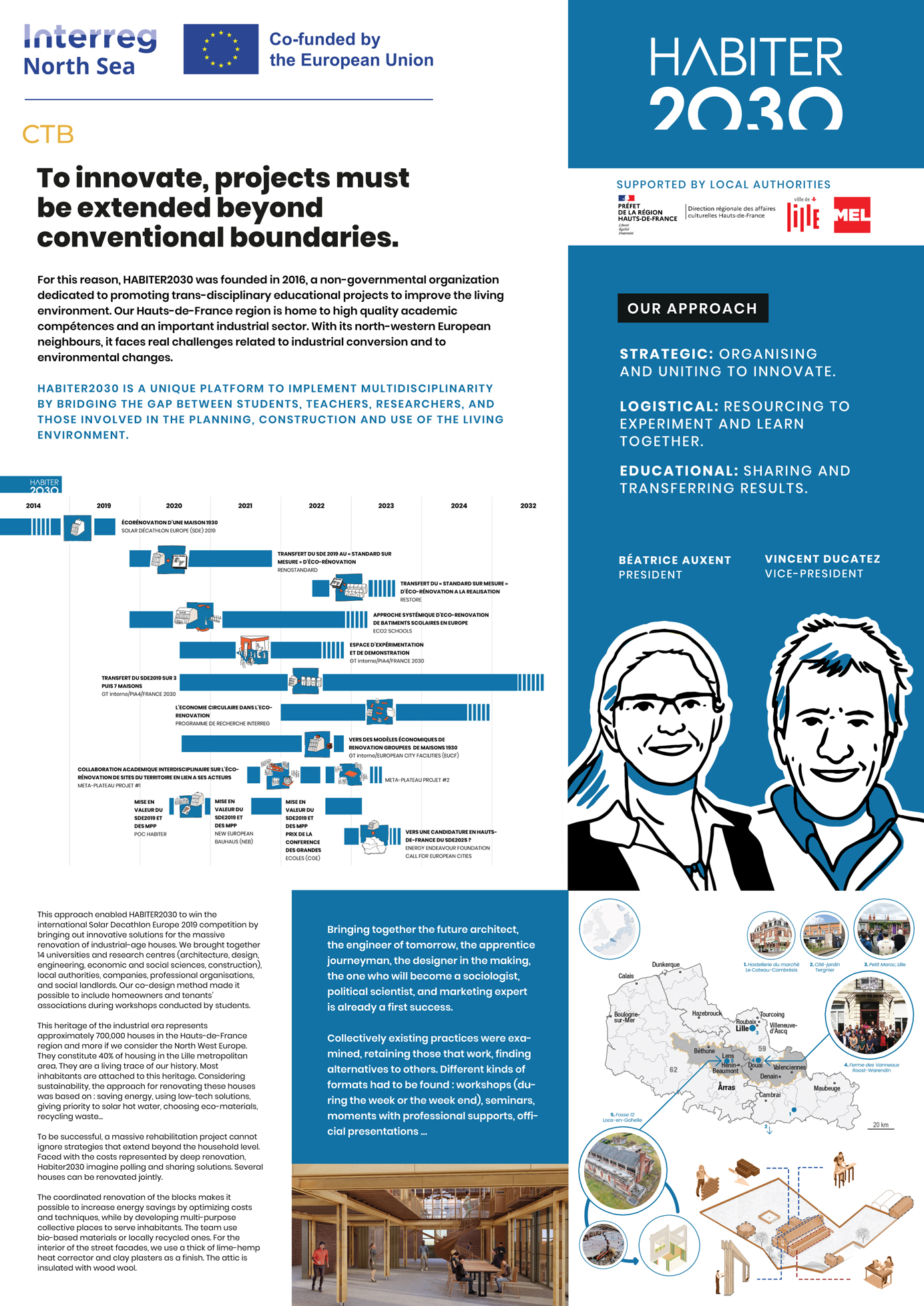
UPCYCLING TRUST: a European project for innovation and inclusion
In 2024, the European project “Upcycling Trust” led by the city of Lille and the Métropole Européenne of Lille launched for a period of 1 year.
In the face of the unprecedented housing crisis, the construction of new government housing is a pressing need for many cities, especially in the Hauts de France region. However, new construction contradicts the ambitions to preserve undeveloped spaces and to reduce the use of resources. A way to overcome this difficulty is the strategy of renovating buildings in poor condition, with landlords who don’t have the resources to take on the renovations. The reuse of materials and the absence of new construction allows for the reduction of costs.
The model that promotes this strategy is called Community Land Trust and is similar to a joint land lease. It’s well-known but not as applied to circular renovations. Pilot projects in Cork, Gand, Lille, Rennes and Brussels will test this new approach and its legal, operational, technical and financial strategies. The first upcycled residences affect 150 low-income families, and the hope is that the project will expand to cover more housing and residents. The involvement of local and regional authorities as well as university partners must allow for the development of new urban policies to respond to the housing crisis, strengthening the urban fabric and reducing environmental impacts.
In the context of this European project, HABITER2030 will lead working group 1 and supervise the implementation of the 5 pilot projects. Besides facilitating communication among partners, HABITER2030 will support the joint, shared design of projects and will analyse the conditions of reproducibility of the process. The association will also identify the best adapted technical and architectural solutions for the 5 pilot projects. In line with its associative project and throughout its duration, HABITER2030 will involve students in the research and concrete achievements of the project.
